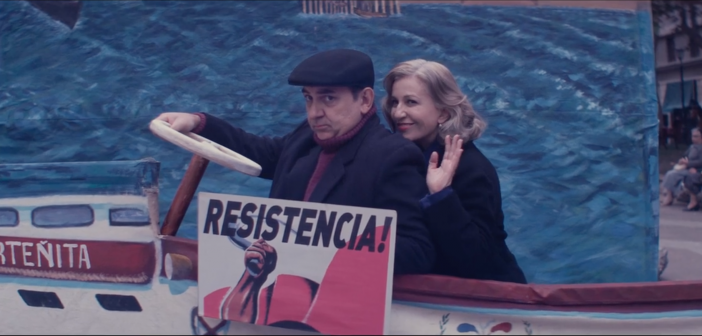Larraín examines the function of an artist and his creations with grace and power, with a fluidity of time and convolution of plot and politics that can sometimes make the journey a struggle. But be assured, the climb is worth the view at its peak.
From the director of Jackie comes another biopic that steps out of the confines of its genre. Pablo Larraín examines truth and myth, fact and fiction, art and reality, and does so with a skill and grace that never lets up.
The film is named for Pablo Neruda, a communist poet and senator, who was exiled from his home country of Chile in 1948. The Neruda we see on screen, played by Luis Gnecco, bears a strong resemblance to the poet, but his champagne communism, hypocrisy, and selfishness contrast with the romantic Neruda history has adopted. Following him is the police officer Oscar Peluchonneau (Gael García Bernal, who also starred in Larraín’s 2012 drama, No), the son of a prostitute, who believes his father to have been the late chief of police. Peluchonneau seems to have control of the piece, narrating the film with sharp wit and omnipotence, until it comes to light that he is, in fact, fictional, a creation of the man he is attempting to catch.
The film itself could be described as magical realism, winding fluidly through time and space. Peluchonneau comments on conversations he was not present for, and the conversations themselves seem to take place in many places at once, some moving between bright balconies and shadowy rooms for instance. One conversation between Peluchonneau and Neruda’s wife, Delia del Carril (Mercedes Morán) especially lingers, as the characters discuss each others’ reality. She tells him: ‘In this fiction, we all revolve around the protagonist’. He replies: ‘I’m not a supporting character’. And he is not. In fact, he is as much the protagonist as Neruda himself, and Larraín seems to ask us to examine the difference, or lack of, between the fact and fiction of history.
In the same way that Peluchonneau fights to be the hero of the piece, Neruda works for fame, constructing the romantic chase between himself and the officer. He sends Peluchonneau detective novels, taunting him with his own unreality, and sends poetry to revolutionaries while in hiding. Although Neruda is a deeply flawed character, he is more than a person; unlike Jackie, which fought for historical figures to be seen as mere people, Larraín here establishes history’s Neruda as a creation of his own poetry. We see Neruda write poems in cramped, dingy rooms, tipsy and tired. We see him read one to his wife, who asks him to read it in his other voice. “What other voice?” he asks. “The voice of a poet”, she replies. We see this poem read and repeated by the people, we see it heard and chanted, we see it inspire revolutions. In short, we see Neruda transformed from person to poet, human being to historical figure, through the act of creation.
The cinematography of the piece is no less transformative. The soundtrack includes excerpts from Penderecki, Grieg and Ives, and is rich and gives each shot an extra emotional nudge. The shots themselves are lush and beautifully choreographed, backed by sweeping Chilean landscapes and busy, surreal streets, in a gorgeously muted palette. All performances have depth, heart, skill, and strength enough to carry the storyline through each step of its serpentine course.
This is no film to watch lightly. Dizzying and profound, Larraín has created something provocative, powerful, and poetic, doing justice both to its namesake and the act of creation itself.
Neruda (2017) directed by Pablo Larraín, is distributed in the UK by Network Releasing. Certificate 15.




